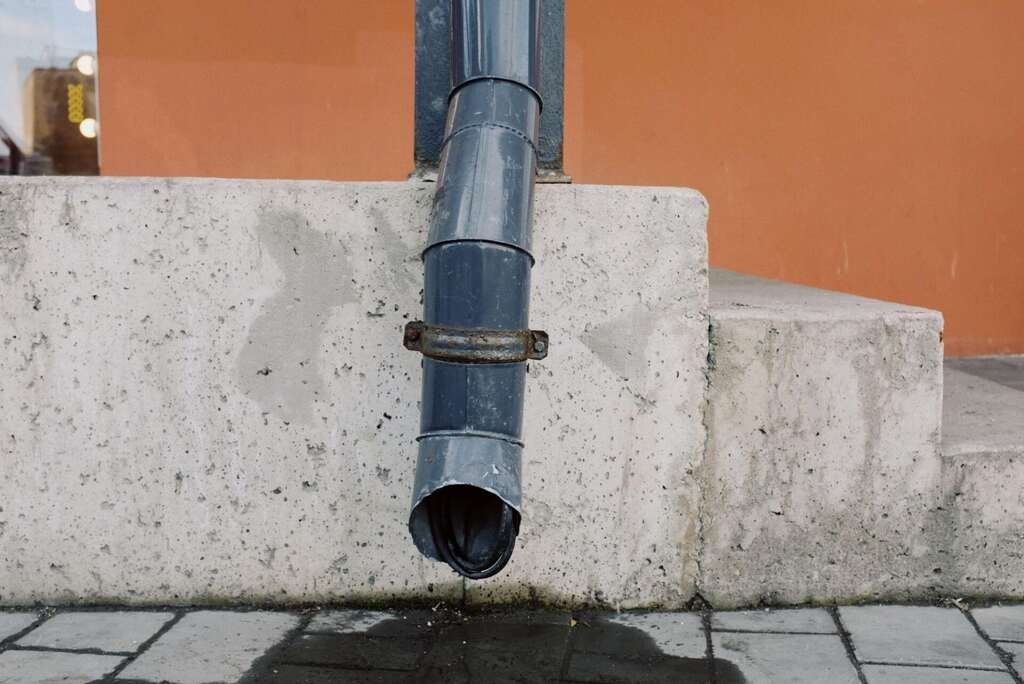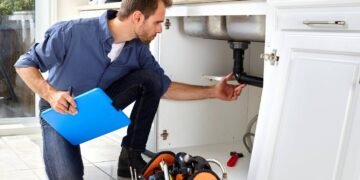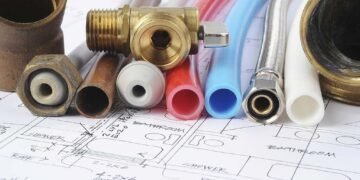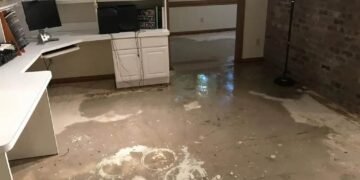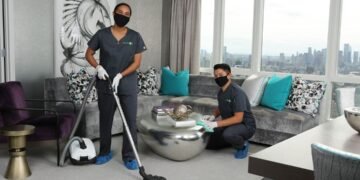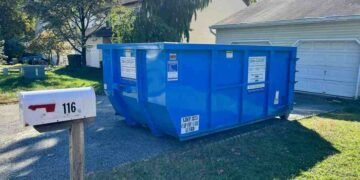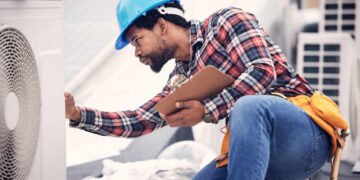As a new homeowner, it can be both fun and hard to figure out how to take care of your home. One of the most essential parts of taking care of your new home is to make sure the home’s plumbing system works well.
A well-maintained plumbing system protects you from costly damage and repairs. Here we discussed 16 plumbing maintenance tips for new homeowners to avoid costly consequences and enjoy peace of mind in a well-maintained home.
16 Plumbing Maintenance Tips for New Homeowners to Save Money
1. Schedule Routine Pipe Inspections
As a new homeowner, it’s essential to check your home’s plumbing system regularly. By conducting routine inspections, you will be able to detect potential problems such as leaks, corrosion, or damage early on, which will prevent costly repairs and water damage.
Make it a habit to check your pipes every few months. Look for any signs of moisture, mold, or musty odors that could indicate a hidden problem with the pipes. You can save money and extend the life of your plumbing system by properly establishing a routine inspection schedule.
2. Cleaning and Take Care of Faucets and Showerheads
If you experience a loss of water pressure in the shower, it’s important to start from easiest to more difficult when troubleshooting why you lost water pressure in the shower. Minerals can build up over time on your faucets and showerheads and reduce the flow and pressure of the water.
To remove the buildup from these components, you must dismantle them regularly and soak them in a vinegar solution. This process will sustain their effectiveness and mitigate the need for expensive replacements.
3. Install a System to Soften the Water
Hard water is high in dissolved minerals, mostly calcium and magnesium. These minerals can build up in your pipes and appliances, reducing efficiency. Repairing or replacing those pipes might be costly or create a more complex problem for the new homeowners.
Installing a water softener can protect minerals from building up in your plumbing and make it last longer. You can talk to a professional plumber to find out what kind of water softener will work best for you and how to install it correctly.
4. Clean Your Drains
Keeping your drains clean and clogged-free is essential to maintain your plumbing system running smoothly. You can use a combination of baking soda, vinegar, and hot water that may help to break down grease, hair, and other debris to prevent the blockages of the drain.
Regularly cleaning your drains with this process can save you from calling a professional intervention, which may add more cost. An eco-friendly cleaning system is a more cost-effective solution for new homeowners.
5. Should Not Use Chemical Drain Cleaning Methods
Chemical drain cleaners are an easy and quick solution to clogged drains. However, the process can cause long-term damage to your pipes. These strong chemicals can create leaks and cause costly repairs of pipes.
Instead, you can use environmentally friendly alternatives to clear blockages. Using the method we have explained, you can keep your drains running smoothly and prevent any serious problems. The Environmental Protection Agency (EPA) could fine you a lot of money if you use harsh chemicals to unclog drains, especially if those chemicals get into the water supply.
6. Take Steps To Prevent Frozen Pipes
Frozen pipes can be expensive for new homeowners because they can burst and cause costly water damage. You can prevent this by insulating exposed pipes in unheated areas of your home, such as garages or crawl spaces.
In addition, disconnect and drain your outdoor hoses before winter, and install frost-proof outdoor water taps. You can also keep a sufficient temperature inside your home during the winter months, which may help to prevent freezing the pipes.
7. Maintenance of a Water Heater
Your water heater is an important part of your plumbing system. Regular maintenance, like draining and flushing the tank once a year, can stop sediment from building up in the heater.
On the other hand, it makes the heater less efficient and shortens its life. If your water heater is more than 10 years old, it should be thoroughly checked for leaks, corrosion, and other problems or possibly replaced.
8. To Prevent Clogs, Use Drain Screens
Drain screens are simple but useful tools that can keep your drains from getting clogged and protect your plumbing system. You may install screens on all showers, bathtubs, and sinks to collect hair, dirt, and other objects to prevent blockages. Remember to clean the screens regularly and do not strain your pipes unnecessarily so that the water flows in your pipes freely.
9. Properly Dispose of Grease and Food Waste
If you pour grease and other large food particles down the drain, you might severely damage your pipes. Instead, you should put the grease in a container to cool and solidify before throwing it away. Also, you should put the food particles in a compost bin or garbage disposal. By following these easy steps, you can avoid clogs and expensive repairs.
10. Maintenance of Your Sump Pump
A sump pump is necessary to save your basement from flooding when it rains hard or when the groundwater level rises. Regular maintenance, like cleaning and testing, you can ensure that the pump will work when you need it most. In addition, a well-maintained sump pump can help you avoid costly water damage repairs.
11. Testing The Water Pressure
Testing the water pressure in your home is a crucial step to keeping your plumbing system secure and preventing potential damage. While low water pressure may be an indication of blockages or other issues, on the other hand, high water pressure can put a strain on your pipes and fixtures. High water pressure can be the cause of leaks also.
You can also install a water pressure gauge to test your home’s water pressure. Usually, the water pressure in your home should be between 40 and 80 PSI. You should always test the water pressure in your home regularly, which may help you figure out if there are any problems with the plumbing. So, if you monitor your water pressure, you can fix any issues before they worsen and cost more money.
12. Be Aware of What You Dump Down the Drain
As we have mentioned earlier, we should not put any large food particles or grease. There are more elements that we should be careful about. You should be cautious of what you flush down the toilet. Avoid non-biodegradable items such as wipes, diapers, or any feminine products. Proper disposal of these items can help to avoid blockages and save money.
13. Bring in Outdoor Pipes
Outdoor plumbing pipes are significantly more vulnerable to freezing and bursting during the colder months. The pipe may crack or burst if the water inside the pipe freezes. This could lead to costly repairs as well as potential water damage to the inside of your house. Bringing in all pipes that lead directly outside is essential to avoid this situation. And the task should be done before the colder months come up.
The first step is to remove all hoses from outdoor faucets and drain any remaining water. After the water has been exhausted, turn off the outdoor faucet’s water supply and open the spigot to allow any leftover water to the drain. Instead, consider installing a frost-free bib on the fixture to keep the pipe outside during the cold months. This will help protect your plumbing system and ensure it’s ready to use when the weather gets warmer again.
14. Know Where the Shut Off Valve Is
You must know where your main water shut-off valve is in a plumbing emergency, like a pipe burst or a significant leak. You can reduce water damage and associated repair costs by quickly turning off the water supply. You have to make sure that not only you but everyone in the family knows where the valve is and how to use it. The valve should be in a place where everyone can easily access it. You must also check the valve regularly to ensure it is operating perfectly.
15. Keep A Connection With A Professional Plumber
Making a connection with a professional plumber is an important part of homeownership. It ensures you have a trustworthy expert to call for routine maintenance, repairs, and emergencies. In addition, a verified and experienced plumber can give you advice, help, and services that will keep your plumbing system in good condition. So, getting help from a trusted expert can save you time and money. Also, give you relief from stress.
16. Educate Yourself and Your Family
As a new homeowner, you will try to avoid any costly consequences. To succeed in this process, the essential part is to educate yourself. You should also teach everyone in the family about proper plumbing maintenance and what to do in an emergency. If all of you are aware of plumbing issues, you can avoid any worst situations and their costly consequences to fix.
Conclusion
Homeowners must conduct routine plumbing maintenance that should be addressed. As a new homeowner, you should take the time to learn about your plumbing system.
You may take different preventive steps to make sure it works well. However, use the following tips as part of your regular maintenance routine. You’ll be able to handle any plumbing problems properly and keep your home’s plumbing system running smoothly.
Recommended Posts:

